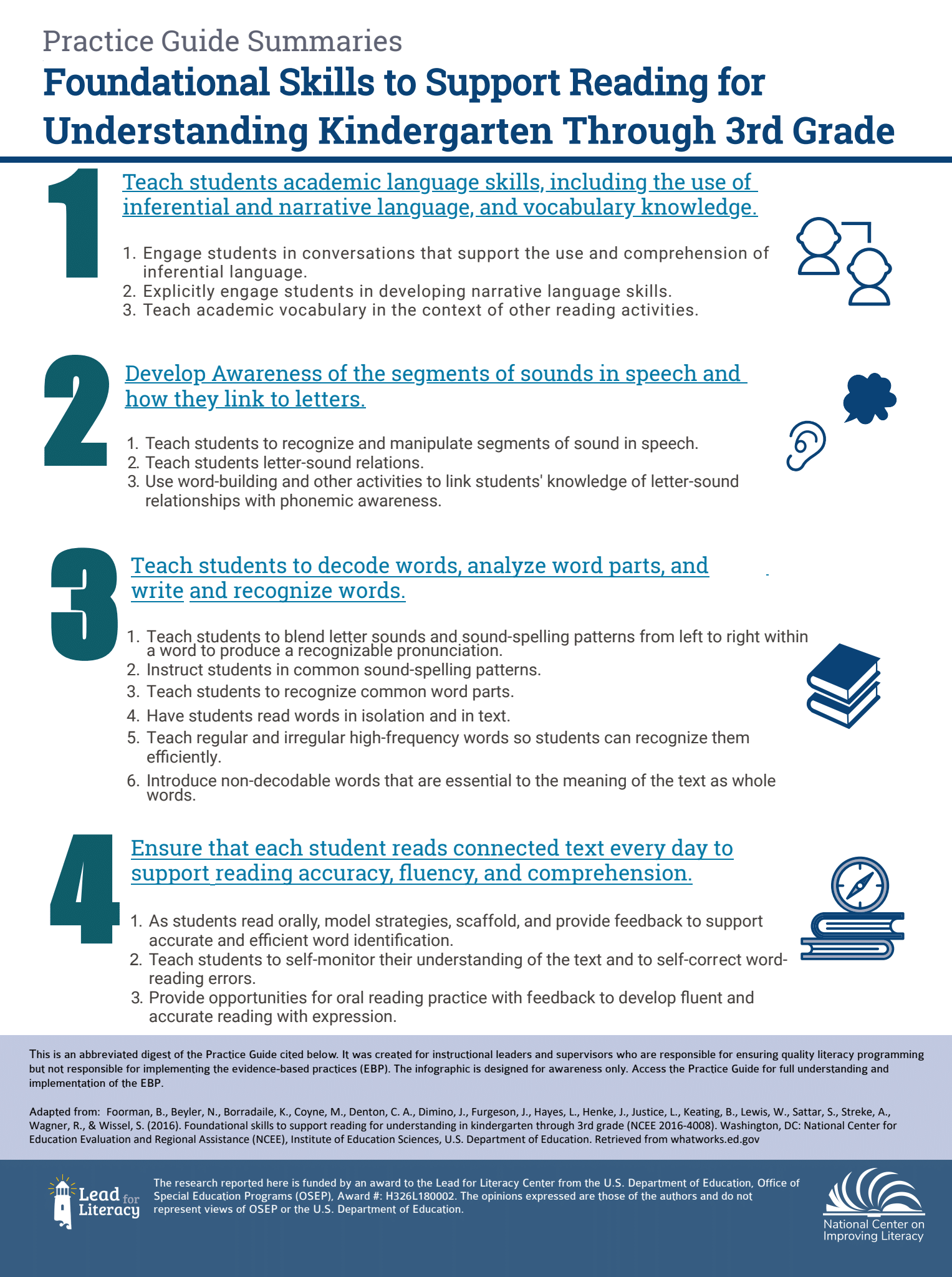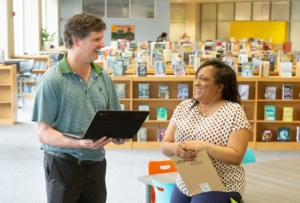The IES practice guide on Foundational Skills to Support Reading for Understanding in Kindergarten Through 3rd Grade provides the following four recommendations for teaching foundational reading skills to students in kindergarten through 3rd grade:
1. Teach students academic language skills, including the use of inferential and narrative language, and vocabulary knowledge.
-
Engage students in conversations that support the use and comprehension of inferential language.
-
Explicitly engage students in developing narrative language skills.
-
Teach academic vocabulary in the context of other reading activities.
2. Develop awareness of the segments of sounds in speech and how they link to letters.
-
Teach students to recognize and manipulate segments of sound in speech.
-
Teach students letter-sound relations.
-
Use word-building and other activities to link students’ knowledge of letter-sound relationships with phonemic awareness.
3. Teach students to decode words, analyze word parts, and write and recognize words.
-
Teach students to blend letter sounds and sound-spelling patterns from left to right within a word to produce a recognizable pronunciation.
-
Instruct students in common sound-spelling patterns.
-
Teach students to recognize common word parts.
-
Have students read words in isolation & in text.
-
Teach regular and irregular high-frequency words so students can recognize them efficiently.
-
Introduce non-decodable words that are essential to the meaning of the text as whole words.
4. Ensure that each student reads connected text every day to support reading accuracy, fluency, and comprehension.
-
As students read orally, model strategies, scaffold, and provide feedback to support accurate and efficient word identification.
-
Teach students to self-monitor their understanding of the text and to self-correct word-reading errors.
-
Provide opportunities for oral reading practice with feedback to develop fluent and accurate reading with expression.





